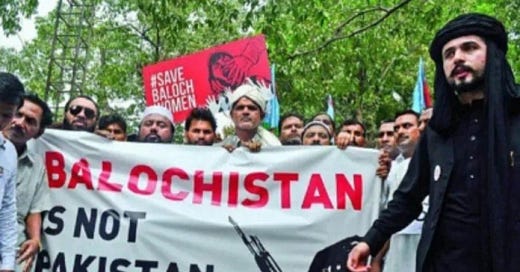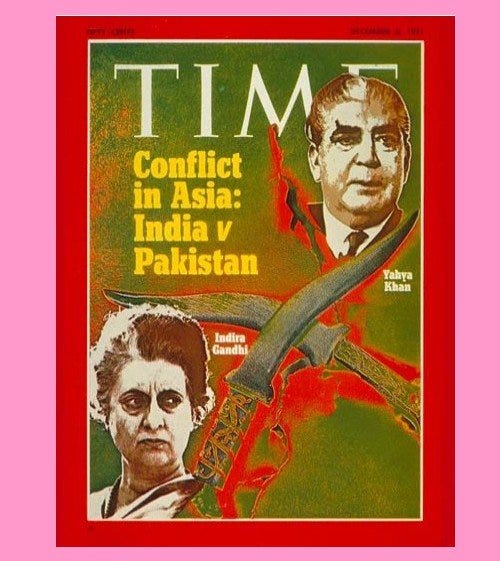Deadly Balochistan Attack Kills 20 Miners, Sparks Security Concerns Ahead of International Summit in Islamabad
Raises Security Concerns Ahead of High-Profile Shanghai Cooperation Organization (SCO) Summit in Islamabad on 15-16 October. India’s External Affairs Minister S. Jaishankar leading Indian delegation.
Deadly Attack on Miners in Balochistan Leaves 20 Dead
In a horrific act of violence, 20 miners were killed and 7 others injured in an attack on a coal mine in Balochistan’s Duki district in the wee hours of Friday morning. Armed with automatic weapons, rockets, and grenades, the assailants stormed the Junaid Coal Company mines, located east of Quetta in Pakistan's restive southwest. The attackers brutally rounded up the workers before opening fire, leaving behind a devastating scene of carnage. Among the victims were both local labourers and Afghan nationals, further intensifying the tragedy and spreading grief across both communities. While security forces have since secured the area, the attackers’ motives remain unclear as investigations are ongoing.
The attack, occurring just days before Pakistan is set to host the high-profile Shanghai Cooperation Organization (SCO) summit in Islamabad on 15 and 16 October, has significantly heightened security concerns. While no group has officially claimed responsibility, the massacre serves as a grim reminder of the ongoing insurgency in Balochistan, where separatist factions have long accused the central government of exploiting the province's natural resources while leaving its local communities impoverished and marginalised. However, many independent security experts believe the Balochistan Liberation Army (BLA) is behind this audacious assault, a group notorious for orchestrating such brazen attacks with increasing frequency and not limited to Balochistan alone. The BLA has consistently targeted both local and foreign interests in its insurgent campaign, further complicating Pakistan’s security landscape as it prepares for the summit.
Balochistan’s Struggle for Liberation and Pakistan’s Challenge
Balochistan, Pakistan’s largest province by area, has been the epicentre of a long-standing separatist movement. The Baloch people have frequently voiced their discontent over what they see as economic deprivation and political neglect. Historically, the insurgency has sought greater autonomy and control over the province's natural resources, which are rich in gas, minerals, and other valuable assets. However, successive Pakistani governments have failed to address the core grievances of the Baloch population, leading to an unending cycle of violence and repression.
Over the years, the Pakistani government has faced harsh criticism for its response to the insurgency, which has included allegations of human rights abuses, forced disappearances, and military crackdowns. These actions have further alienated the local population, fuelling more unrest and rebellion. The international community, particularly human rights organisations, has occasionally raised concerns about the government's handling of the Balochistan issue, but meaningful dialogue has yet to take root.
Impact on the Shanghai Cooperation Organization (SCO) Summit
The recent attack has cast a significant shadow over Pakistan’s preparations for the upcoming Shanghai Cooperation Organization (SCO) summit, a pivotal diplomatic event that will bring together leaders from major regional powers, including China, Russia, and India. Pakistan had intended to use the summit to showcase its role as a key player in regional security and economic cooperation. To facilitate the smooth conduct of the two-day meeting, scheduled for 15-16 October 2024, the federal government has declared a three-day "closed holiday" in Islamabad and Rawalpindi from October 14 to 16. Several heads of government from SCO member countries are expected to attend, with India’s External Affairs Minister S. Jaishankar leading the Indian delegation. However, persistent violence in Balochistan—exemplified by this tragic incident—along with unrest in other parts of the country, has raised serious concerns about the government’s ability to ensure security for such a high-profile event. These issues could undermine Pakistan’s efforts to project stability and leadership on the global stage.
The Shanghai Cooperation Organization (SCO), established by China and Russia as a strategic counterbalance to Western alliances like NATO, primarily focuses on enhancing security cooperation and promoting economic integration among its member states. Unlike NATO, which is a formal military alliance, the SCO is not designed for collective defence but aims to address shared security challenges, particularly terrorism and extremism, which often spill over borders. However, Pakistan’s ongoing internal strife and persistent terrorism concerns are putting its image as a stable and secure nation under increasing scrutiny. The upcoming summit, intended to showcase Pakistan’s role as a regional leader, may instead spotlight its internal vulnerabilities, casting doubt on its capacity to manage both domestic unrest and regional security challenges.
Chinese Investments Under Threat
China's deepening involvement in Pakistan through the China-Pakistan Economic Corridor (CPEC), a flagship project of its Belt and Road Initiative (BRI), has been a double-edged sword. While the CPEC has brought much-needed infrastructure development to Pakistan, including new roads, ports, and energy projects, it has also made Chinese nationals and assets prime targets for insurgents in Balochistan.
In recent years, Chinese workers and projects have frequently been attacked by Baloch separatist groups, who view China’s involvement in the region as an extension of Pakistan’s exploitation of their natural resources. The $62 billion CPEC project, which includes the development of Gwadar Port and other key infrastructure, is seen by many in Balochistan as serving the interests of Pakistan's central government and Chinese investors rather than benefiting the local population.
In this context, Thursday’s attack is part of a broader trend of violence targeting foreign nationals, particularly those associated with CPEC. This raises serious concerns for Chinese workers stationed across Pakistan, with several incidents in recent years underscoring the dangerous environment in which these projects are being implemented. If the violence continues unabated, it could threaten the future of these economic initiatives, which are crucial to both Pakistan and China.
Regional Implications: India’s Position
India, a key member of the SCO, has long watched the situation in Balochistan with interest. In a significant departure from past policy, Prime Minister Narendra Modi, during a 2016 speech, expressed open support for the Baloch people’s struggle for autonomy. While India officially denies any involvement in fomenting unrest in the region, Pakistan has repeatedly accused India of supporting Baloch separatists as part of a broader strategy to destabilise its neighbour1.
For India, the instability in Balochistan serves as both a challenge and an opportunity. On one hand, the violence near Pakistan’s western border complicates India's broader strategic goals in the region, including its own economic and security interests. On the other hand, India's support for Balochistan could serve as a counter-narrative to Pakistan's stance on Kashmir, providing India with a diplomatic tool to pressure Pakistan on the international stage.
The Need for Dialogue and Peaceful Resolution
As Pakistan grapples with these internal and external challenges, there are increasing calls for a peaceful resolution to the conflict in Balochistan. Many experts believe that the only way to achieve lasting stability in the region is through dialogue with Baloch leaders and addressing the core issues of resource sharing, political autonomy, and human rights.
While Pakistan’s military approach has managed to suppress much of the insurgency over the years, it has not succeeded in addressing the root causes of the unrest. Meaningful economic development that benefits the local population, along with political reforms that grant greater autonomy, could pave the way for a lasting solution. However, such efforts require a long-term commitment from Islamabad and a willingness to engage in genuine dialogue with Baloch leaders.
Summing Up: A Fragile Moment for Pakistan
As Pakistan gears up to host the SCO summit, the deadly attack on miners in Balochistan is a stark reminder of the country’s ongoing internal struggles. The violence underscores the broader challenge of securing foreign investments, maintaining regional stability, and addressing the grievances of marginalised populations. With the eyes of the world on Pakistan, the government must take decisive steps not only to ensure security for the upcoming summit but also to address the long-standing issues in Balochistan2. Only through dialogue, equitable development, and political reforms can Pakistan hope to bring peace to the region and strengthen its position on the global stage.
🔴 Balochistan in our thoughts: Our Resolve on Pakistan's Independence Day 🔴
Relentless State Terror: Pakistan’s War on Balochistan
Balochistan Exposes Pakistan's Double Standards on Kashmir
"Pakistan was born out of confusion, nurtured in paranoia, and sustained by fear." (Pervez Hoodbhoy, noted Pakistani nuclear physicist and activist)








